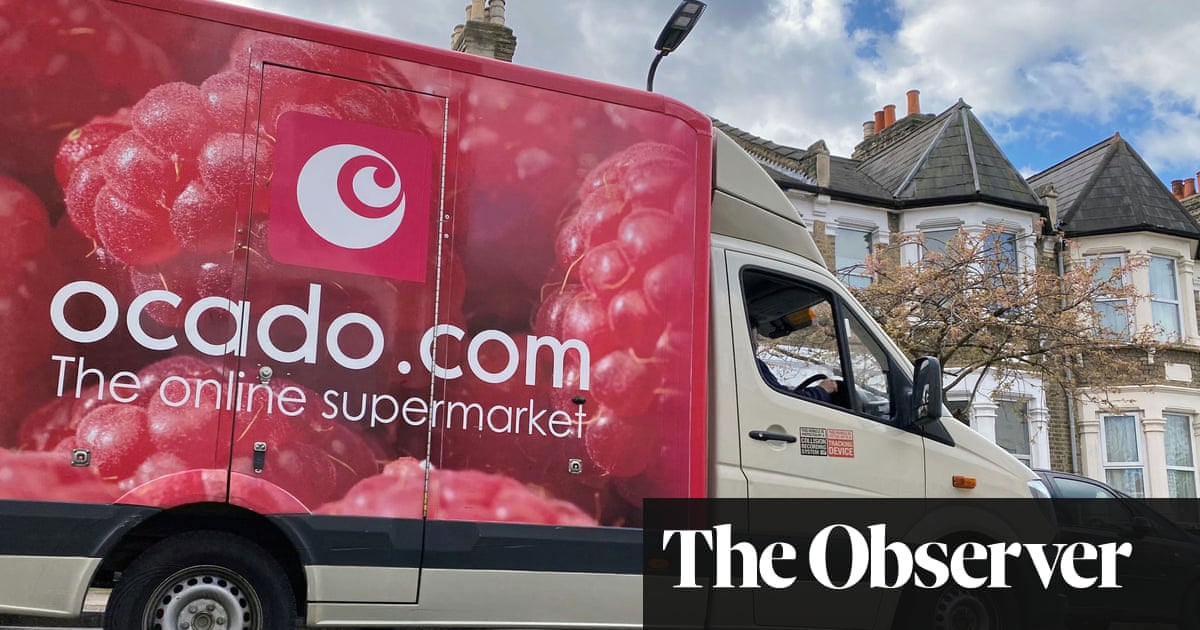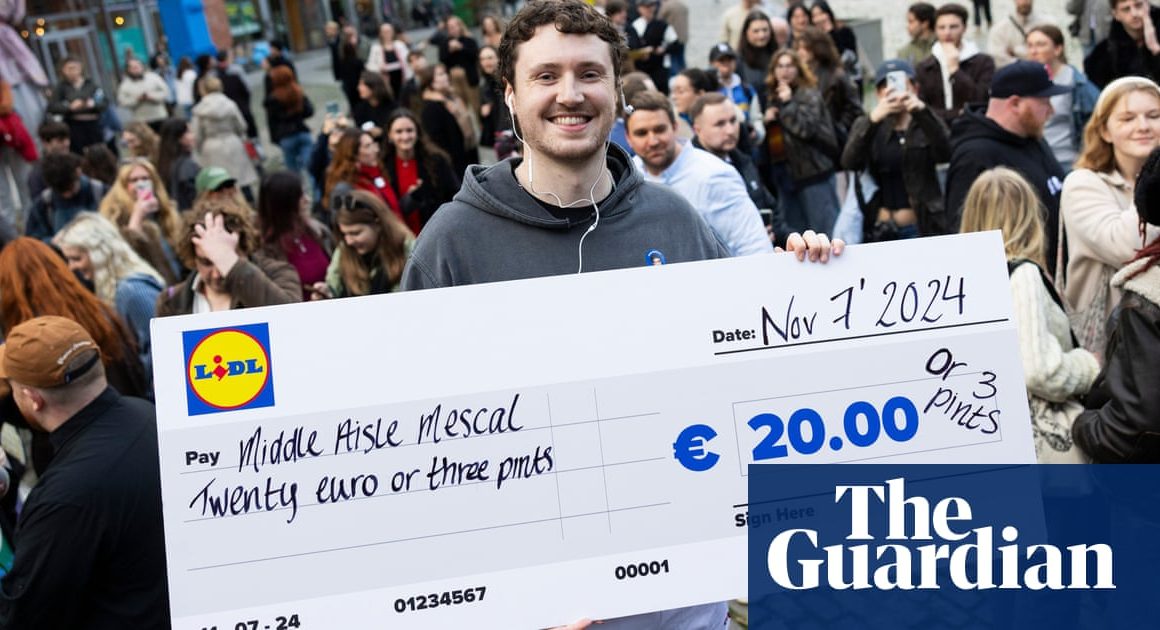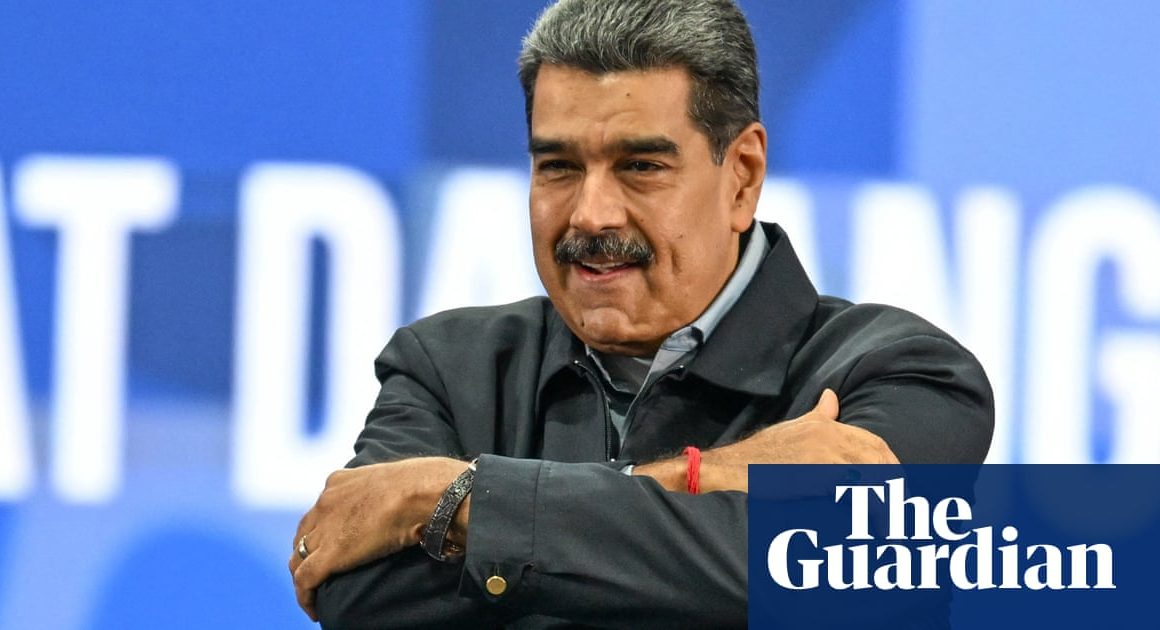More than 40 businesses including Ocado, the AA and Openreach have called on the mayor of London to abandon plans to extend the congestion charge to electric vans.
On Christmas Day 2025, drivers of electric vehicles will start having to pay the same £15 a day charge as those driving petrol and diesel vehicles in central London.
This will hinder the already sluggish take-up of electric vans, the businesses say. Only 5.9% of new vans sold in 2023 were electric, and last week the car industry said it was also struggling to sell electric cars without government incentives. The growth in home deliveries has seen carbon emissions from vans rise by 63% since 1990, while emissions from cars has fallen over the same period.
Many of the businesses signing an open letter to Sadiq Khan – who are backed by Clean Cities, the environmental campaign group, and the Federation of Small Businesses – have invested in electric fleets. They say the current system, where they pay £10 a year to register each vehicle as exempt, played a “fundamental role” in those investments and that the decision to end the exemption will inflict an “astronomical cost” of £5,500 per vehicle per year on the firms that have already made the switch away from diesel. Abolishing the exemption would undermine firms who have “taken on debt to invest in the air we breathe”.
“Ten years ago, it was common to blow your nose and find black particulates on your handkerchief,” said Edmund King, president of the AA. “This has thankfully changed. Cutting the discount for electric vans is a detrimental policy which could backfire on the health of Londoners and the economy of London. We still need to encourage zero emission transport rather than deter it.” The mayor has previously defended his decision saying that the congestion charge was originally created to relieve traffic in central London while electric vehicles have increased from 20,000 six years ago to 112,000.
Fewer than 3% of vans registered in London are electric, and when the mayor offered a £100m scrappage scheme for people affected by the Ulez expansion, just 2% of vans were replaced with an electric version.
Part of the lack of enthusiasm is because electric vans are more expensive to buy than diesel vans, and can be difficult to charge as they are too large to fit in some public charging points.
Electric van sales in the Netherlands are twice as high as the UK and, last week, a Clean Cities report showed that 20 Dutch cities are creating zero emission zones where all delivery vehicles must be powered by a battery or hydrogen. The mayor has dropped plans for a zero emissions zone in London.
Oliver Lord, UK head of Clean Cities, said that Khan’s decision was “at odds with his track record and his commitment on climate”.
“Ultimately, small businesses are those set to suffer the most, with the progress towards a cleaner, electric future choked off in an economic situation already fraught with challenges,” Lord said.
“How is it right that a dirty diesel van pays the same as a cleaner electric vehicle in the most polluted part of the UK?”
Laura Timm, Federation of Small Businesses London Policy Chair said: “Small firms all over London have faced a ‘cost of doing business crisis’ for the best part of a decade and many have ‘done the right thing’ and invested in green initiatives within their business.”
A spokesperson for the Mayor said that the Cleaner Vehicle Discount was ending because the increase in electric vehicles had reduced the impact of the congestion charge.
“However, the Mayor recognises the issues raised relating to electric vans, including the importance of supporting those businesses who have done the right thing and moved to cleaner vehicles.
“We are working with TfL to see what more could be done to mitigate the effect of this phasing out and further incentivise businesses to make the switch to cleaner vehicles. This is alongside other initiatives including freight consolidation and cargo bike deliveries. We continue to work with government on national measures that could make a difference, including the extension of the plug-in van grant.”












